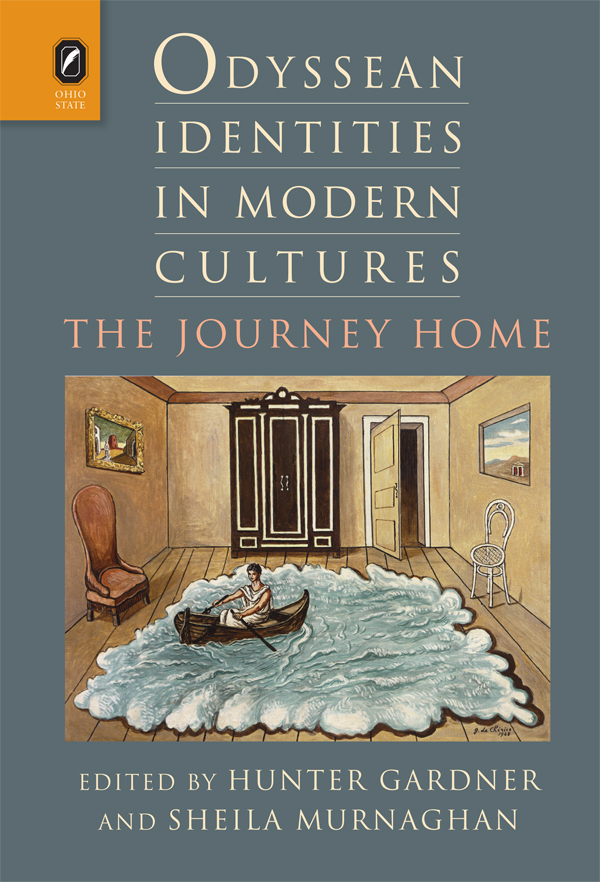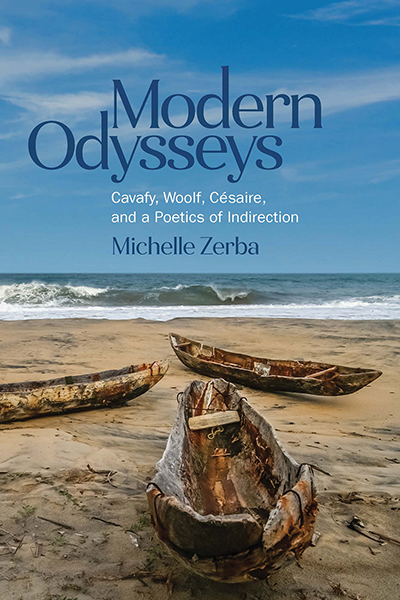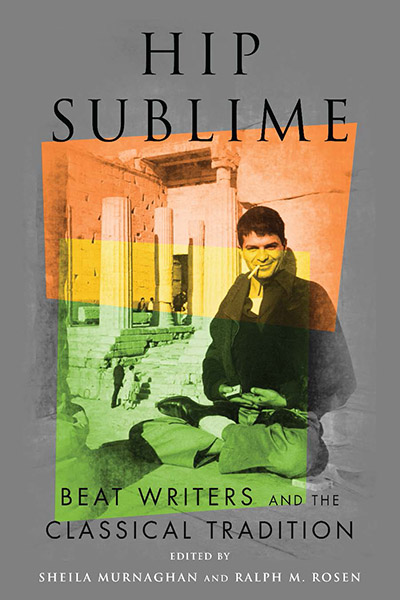“With its focus on the soft pre-Homeric tradition as the prehistory of its post-Homeric continuation leading up to the twentieth-century odysseys re-told by Cavafy, Woolf, and Césaire, Michelle Zerba’s study fills a very relevant gap of scholarly research.” —Dieter Fuchs, James Joyce Quarterly
“In addition to being riveting to read, Modern Odysseys offers readers a compelling new framework for thinking about the emergence of counter subjectivities within international modernism and enlivens scholarly debates about the modern afterlives of Homer’s Odyssey. The author’s intellectual flair, theoretical verve, and impressive range all command attention.” —Emily Greenwood, author of Afro-Greeks: Dialogues Between Anglophone Caribbean Literature and Classics in the Twentieth Century
“The book’s distinctiveness and charm are enhanced by the author’s clarity and usefulness. Modern Odysseys makes a valuable intervention in the popular subfield of reception studies within classics.” —Alexander Beecroft, author of Authorship and Cultural Identity in Early Greece and China: Patterns of Literary Circulation
Michelle Zerba’s Modern Odysseys explores three major writers in global modernism from the Mediterranean, Anglo-European Britain, and the Caribbean whose groundbreaking literary works have never been studied together before. Using language as an instrument of revolution and social change, C. P. Cavafy, Virginia Woolf, and Aimé Césaire gave expression to the forms of human experience we now associate with modernity: homoeroticism, transsexuality, and racial consciousness. More specifically, Zerba argues that Odyssean tropes of diffusion, isolation, passage, and return give form to works by these writers but in ways that invite us to reconsider and revise the basic premises of reception studies and intellectual history.
Combining close readings of literary texts with the study of interviews, essays, diaries, and letters, Zerba advances a revisionary account of how to approach relationships between antiquity and modernity. Instead of frontal encounters with the Odyssey, Cavafy, Woolf, and Césaire indirectly—but no less significantly—engage with Homer’s epic poem. In demonstrating how such encounters operate, Modern Odysseys explores issues of race and sexuality that connect antiquity with the modern period.
Michelle Zerba is the Maggie B. Martin Professor of Rhetoric and Classical Studies at Louisiana State University.
Contents
Introduction A Poetics of Indirection and Telling It Slant
Chapter 1 Diffusion and Mixture
Homer: The Odyssey in a Sea of Difference
Cavafy: Diaspora, Oblique Encounters, and Homoerotic Desire
Césaire: The Colonial Antilles and a Map of One’s Own Spilled Blood
Woolf: Tilting at Pagans’ Heads in a House That Is a Town
Chapter 2 Islands and Isolation
Homer: From Calypso to the Therapy of the Word
Cavafy: Cosmopolitan Isolation and Sexual Shaming
Woolf: Domestic Katabasis and Moments of Being
Césaire: Peléan Eruptions and Portraits of Blood
Chapter 3 Passage and Detour
Homer: Odysseus’s Wound and Narrative Detours
Césaire: Lagoons of Blood and Literary Cannibalism
Woolf: Constantinople and Exile as Carnival
Cavafy: Mediterranean Routes and Ephebic Visions
Chapter 4 Return and Split Endings
Homer: Murder in the Home and Split Endings
Woolf: Time Warps and Wild Goose Chases
Césaire: The Incised Tree, the Slave Ship, and the Pirogue
Cavafy: Hedonic Ships on Policed Waters
Epilogue Toward an End
Bibliography
Index
Related Titles:

Odyssean Identities in Modern Cultures
The Journey Home
Edited by Hunter Gardner and Sheilia Murnaghan



